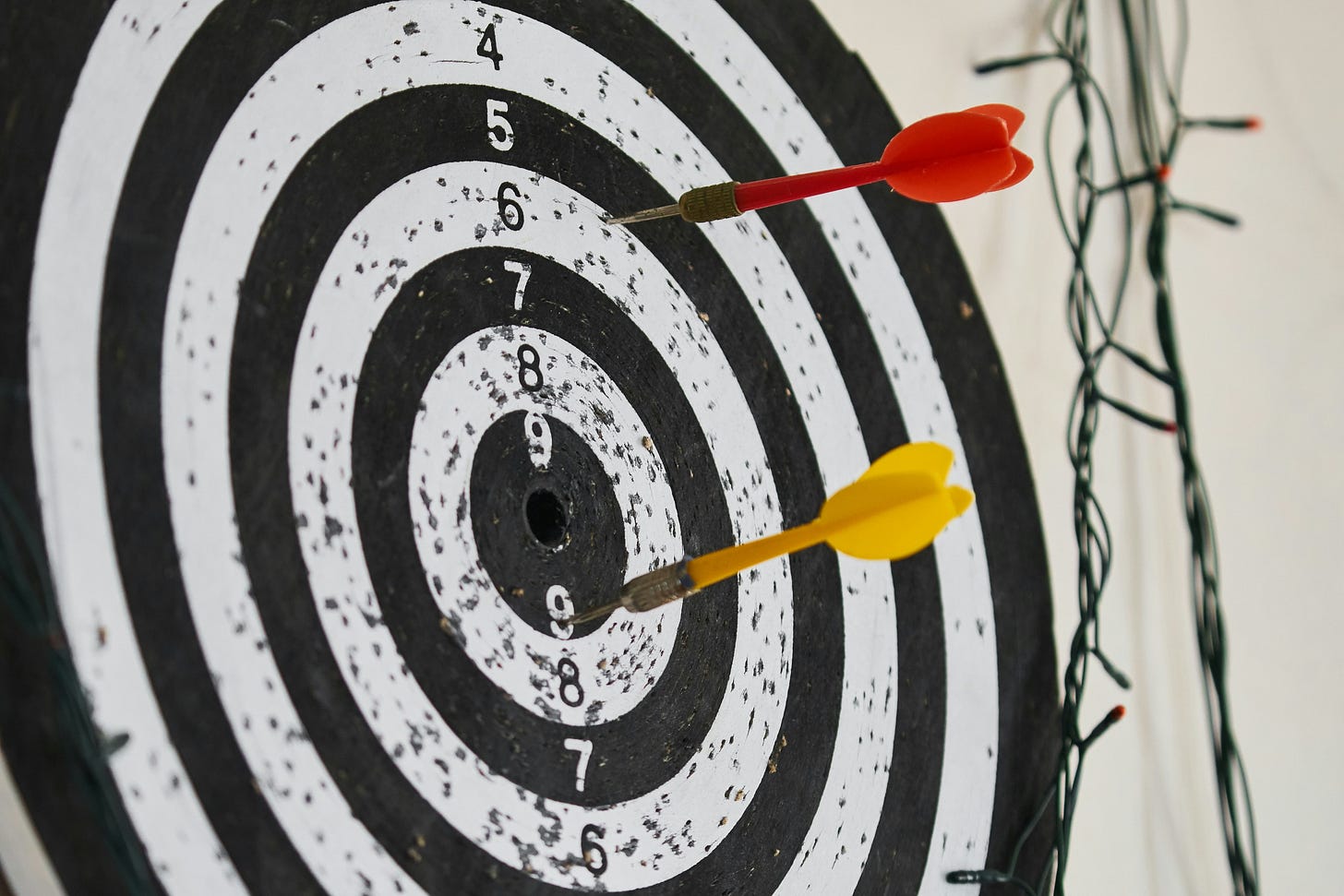
Once upon a time I went to workshop about goal setting. It was based on one idea: Happiness means getting what you want. So what, exactly, do you want?
All of us in the workshop spent hours writing SMART goals and creating detailed action plans to achieve them. We bathed in the multiplicity of desire and fulfillment. The result, we were told, would be happiness.
It was simple. It was straightforward. And it was bullshit.
Life is gloriously messy. It resists the simplistic formulas of the goal-setting gurus.
My wants are infinite and contradictory. I want to lose weight, but I also want to eat bread at every meal. I want to host big family gatherings, but I don’t want to do all the work. I want to play music in public again, but I don’t want to pack my guitar and amp in the car and lug them around to performance venues.
Achieving one desire (losing weight) means ditching another desire (eating bread). Knowing what I want isn’t enough. Equally important is knowing what I don’t want — what I’m willing to give up.
Desires are not all created equal, and I can’t have them all. Some I reject, and the rest get sorted into a hierarchy (this is more important than that).
The workshop leader didn’t tell us this.
Getting something I want also means getting something I don’t want. It’s a basic polarity built into the universe.
When I outgrew the minimum-wage jobs I worked in my early twenties, I started making enough money to grow a savings account. After my initial rush of euphoria, I realized that I had a new problem — what to do with that extra money. Spend it? Save it? Invest? Feeling flush for the first time in my life exposed my financial illiteracy.
Since then I’ve given up on creating a problem-free life. There’s no such thing. Solutions create new problems. All I can do is keep finding bigger, better, and more interesting problems.
Above all, I got bored with that question: What do you want? It’s not the only question worth asking, and it’s not even the most interesting one. There are so alternatives, such as:
Given that I will die, how shall I live?
Who do I love, and what do I ultimately care about?
Given the scope of human suffering, how will I respond?
What is the world asking of me right now?
What’s missing from the world that’s valuable and that I can provide?
What have I received from others? What have I given to others? What difficulties have I caused others? (The core questions in Naikan reflection)
These questions nudge me toward self-transcendence — something bigger than becoming a billionaire or using the law of attraction to effortlessly manifest a new Porsche in my driveway. Instead, I move from getting to giving.
I keep returning to a line from Huston Smith’s book, The World’s Religions: “The self is too small an object for perpetual enthusiasm.” I open up a new dimension of life and aliveness when I remember that it’s not just about me.
Please subscribe. All of my posts are free for everyone. Paid subscriptions are strictly optional.


